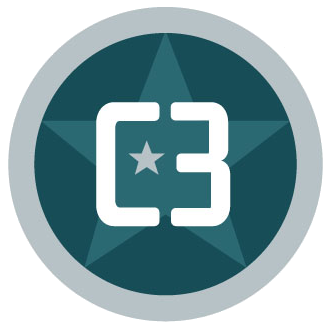A Strategic Guide for COOs to Excel in Dock Scheduling Efficiency

Modern businesses have a much more complex ecosystem than their predecessors. The customers are more demanding, the competition is much more challenging than before, and the business costs are constantly rising.
COOs now often share the load with CEOs in driving cost savings, streamlining operations, and unlocking better value for customers. While COOs have a watchful eye on the supply chain, dock scheduling is still one area that has not been explored to its potential yet.
Here are the top 7 ways that COOs can master dock scheduling efficiency for enhanced operational success:
1-Building the base for a Successful and Efficient Warehouse
Dock scheduling isn't merely planning when a truck docks and departs. It's a complex process for aligning all the resources required to move goods in sync and ensure an optimized flow.
Dock scheduling requires finding and organizing information in multiple steps. These steps can be calculating warehouse resources, workforce demand, the availability of the trucks, and more, and then aligning it all in real time.
When done correctly, efficient dock scheduling reduces truck waiting times and detention fees, increases timely deliveries for the customers, and builds a higher level of trust with them.
2-Improving Transportation Capabilities with Dock Scheduling and TMS
Dock scheduling can help strengthen the logistics for the company. Dock scheduling manages the show by ensuring timely truck arrivals, managing peak load periods, and other warehouse resources. And when it is connected to a Transportation Management System (TMS) it helps generate unseen insights for the company leadership.
COOs can gain insights into areas like carrier performance and trends and even find areas for cost improvements. The company naturally benefits when transport functions like a well-oiled machine, reflecting efficiency and precision.
3-Navigating Dock Congestion
A choked dock can quickly spiral down to major logistical nightmares for the company. Congestion can throw warehouse operations out of sync, from long unloading times to idle trucks competing for docking bays.
To tackle this, dock scheduling can offer great adaptability, dock scheduling can understand and accommodate the processes without disrupting the overall flow when priority shipments land.
4-Tapping into Data-Driven Decision Making
With digital transformation reshaping supply chains, leadership always prefers data-based discussions. By integrating a robust data analytics solution into dock scheduling systems, COOs, and their leadership team gain access to a wealth of knowledge.
From forecasting trends to pinpointing bottlenecks and then planning, improvements can all be made based on the data generated by dock scheduling. To top this further, user-friendly dashboards help empower quick, informed decision-making.
5-Empowering the Frontline Team
The effectiveness of any strategy often depends on the team that executes it. From dock managers to the on-ground loading staff, their roles are instrumental in the large scheme of things.
Regular training modules sharing the latest updates in dock scheduling can strengthen those teams. The warehouse team becomes invaluable when equipped with the right knowledge and tools, driving the strategy to success.
6-Periodic Reviews and Strategy Overhauls
Just making the right strategy is not enough because the dynamic nature of supply chains requires periodic revisiting of the system. An approach that yielded results a year ago might not hold the same efficacy today.
COOs can keep themselves updated by taking time for regular reviews like quarterly or bi-annual ones. Such checks can uncover potential bottlenecks and their solutions, provide a platform to discuss performance metrics and adapt new ways to address the current needs.
7-Collaborating with the Right Tech Partners
One size doesn't fit all when making a warehouse and dock scheduling strategy. The effectiveness of dock scheduling solutions depends on their level of adaptability. This is where the COOs should focus on having a long-term tech partner.
Aligning with partners who understand dock scheduling in-depth and bring a wealth of industry experience can be the game-changer for bringing efficiency to dock scheduling.
Unlocking Unimaged Dock Scheduling Efficiencies
Dock scheduling might seem like a small part of the supply chain, but it has a lot to offer. For COOs committed to excellence, dock scheduling can be a game-changer for the supply chain. Hence, the COOs must focus on it, become early adopters, and gain a competitive edge. C3's dock scheduling solution can be the right partner with its years of experience and its strong team of experts.

